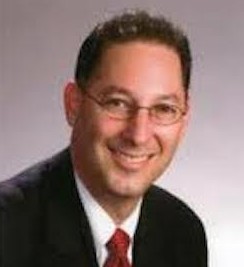While individual and family risk factors play a larger role early in life, negative peer influences usually begin to play an increasingly larger role in early adolescence. A relationship between delinquent peer influence and juvenile offending is generally well established throughout the field of forensic psychology; what is unclear though is whether or not this association with delinquent peers is a result of antisocial tendencies developed earlier in life, or if it actually contributes to the overall risk of developing delinquent behavior. It has been suggested that deviant peer groups do in fact influence non-delinquent individuals to become delinquent. According to the National Youth Survey of juveniles ages eleven to seventeen, a common pattern that was seen was a child switching from a non-delinquent peer group to a deviant peer group, resulting in the commission of various minor offenses, and in some cases more severe crimes. Gang membership is also strongly correlated with self-reported criminal activity. It is suggested that the association of peer groups with antisocial tendencies leads to a greater suspiciousness of other people’s motives, resulting in further hostile and aggressive responses to those outside of the group.
 Exposure to drugs and alcohol, specifically prescription drugs, during adolescence was predictive of various violent criminal offenses, including: attacking another person with a weapon, throwing potentially dangerous objects at another person, and forcibly taking money from another individual. Ongoing substance use disorders are linked to an increased risk of arrest, as well as continued offending throughout adolescence and early adulthood. Higher sensitivity to reward in the juvenile brain increases the risk of becoming dependent on an illicit substance.
Exposure to drugs and alcohol, specifically prescription drugs, during adolescence was predictive of various violent criminal offenses, including: attacking another person with a weapon, throwing potentially dangerous objects at another person, and forcibly taking money from another individual. Ongoing substance use disorders are linked to an increased risk of arrest, as well as continued offending throughout adolescence and early adulthood. Higher sensitivity to reward in the juvenile brain increases the risk of becoming dependent on an illicit substance.
If a minor is arrested and charged, are they competent to make legal decisions regarding their case? In Dusky v. United States, it was established that the defendant must have a basic understanding of the legal process and what is happening to them, in order to effectively make decisions, which potentially have life-altering consequences; they must also appreciate the importance of their own unique situation. It has been found that juveniles under the age of 15, and those individuals with low IQs do not understand the rights that are given to them by Miranda; resulting in an increased risk for falsely confessing to a crime. It has been suggested that adolescents facing criminal charges are limited in their abilities to “identify, consider, and foresee the options and consequences of decisions that face defendants in these circumstances.” Decisions made by an adolescent are constricted by the cognitive abilities of the developing adolescent brain; if asked to make the same decision as an adult, the result may be a completely different response.
Juvenile delinquency is a broad topic in the field of forensic psychology, and a global problem. With help from the various psychological theories discussed above, including the physiological theories of delinquency exploring the biological predisposition for adolescents to make bad decisions, the purpose of this paper was to emphasize the fact that special consideration should be taken into account when it comes to punishing a juvenile offender. Researchers are becoming increasingly knowledgeable regarding the various risk factors that contribute to delinquency. Although some risk factors mentioned above are static and unchangeable, such as gender or low IQ, others are dynamic and changeable; for example, parental practices of promoting a positive self-image or rewarding empathic behaviors. More research needs to be done in the identification of risk factors, and how to use that knowledge to implement preventative measures. The government should not only try and predict future juvenile criminal behavior and recidivism, but should also help find ways to prevent it from occurring. Although forensic psychologists and other educated individuals may understand the limitations of the adolescent brain in the context of making important legal decisions, the general public may not; it is important to emphasize these limitations and educate those in positions of power within the juvenile court system.
Previous | Next
Fort Lauderdale’s Leading Criminal Defense Attorney
If you have been charged or believe you may be charged with a juvenile offense or any other criminal act , an experienced criminal defense attorney is imperative. Kenneth Padowitz, P.A. aggressively handles all State and Federal criminal charges. Contact our law firm to discuss your situation. Our Fort Lauderdale criminal attorney will strategically develop a defense designed personally for you and your situation. Kenneth Padowitz, P.A. represents clients throughout Broward County and all of South Florida, including: Fort Lauderdale, Miami, Palm Beach, Boca Raton, Weston, Hollywood, Davie, Parkland, Cooper City, and Coral Springs.

